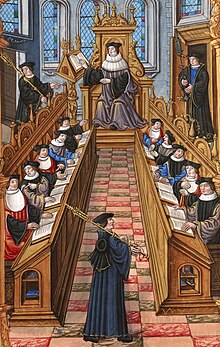
Classical education in the Western world refers to a long-standing tradition of pedagogy that traces its roots back to ancient Greece and Rome, where the foundations of Western intellectual and cultural life were laid. At its core, classical education is centered on the study of the liberal arts, which historically comprised the trivium (grammar, rhetoric, and logic) and the quadrivium (arithmetic, geometry, music, and astronomy). This educational model aimed to cultivate well-rounded individuals equipped with the knowledge and skills necessary to engage in public life, think critically, and pursue moral and intellectual virtues.[1]
In ancient Greece, the classical curriculum emerged from the educational practices of philosophers like Socrates, Plato, and Aristotle, who emphasized dialectical reasoning and the pursuit of truth.[2] The Roman Empire adopted and adapted these Greek educational ideals, placing a strong emphasis on rhetoric and the development of oratory skills, which were considered essential for participation in civic life.[3] As these classical ideas were preserved and transmitted through the Middle Ages, they became the foundation for the educational systems that emerged in Europe, particularly within monastic and cathedral schools.[4]
The Renaissance marked a significant revival of classical education, as scholars in Europe rediscovered and embraced the texts and ideas of antiquity. Humanists of this period championed the study of classical languages, literature, and philosophy, seeing them as essential for cultivating a virtuous and knowledgeable citizenry. This revival continued into the Age of Enlightenment, where classical education played a central role in shaping the intellectual movements that emphasized reason, individualism, and secularism.[5]
Despite undergoing significant transformations over the centuries, classical education has maintained a lasting influence on Western thought and educational practices. Today, its legacy can be seen in the curricula of liberal arts colleges, the resurgence of classical Christian education, and ongoing debates about the relevance of classical studies in a modern, globalized world.[4]